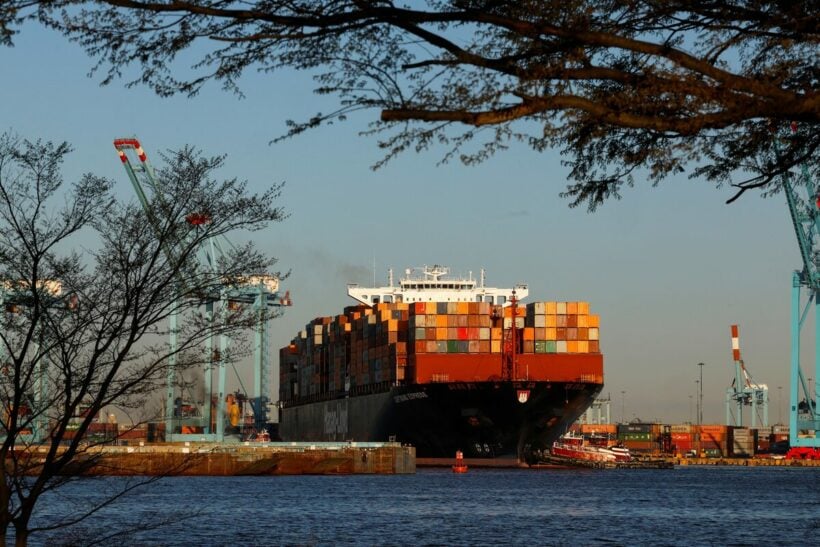
GENEVA, April 11 (Reuters) – Sweeping tariffs on imports imposed by U.S. President Donald Trump and countermeasures could have a “catastrophic” impact on developing countries, hitting even harder than foreign aid cuts, the director of the United Nations trade agency said on Friday.
Global trade could shrink by 3-7% and global gross domestic product by 0.7%, with developing countries the worst affected, the International Trade Centre said.
“It is huge,” Pamela Coke-Hamilton, executive director of the International Trade Centre, told Reuters. “If this escalation between China and the U.S. continues it will result in an 80% reduction in trade between the countries, and the ripple effect of that across the board can be catastrophic.”
Global markets remained in turmoil on Friday. Trump this week announced a 90-day tariff pause on dozens of countries but hiked the duties on Chinese goods to an effective rate of 145%. On Friday, Beijing increased its tariffs on U.S. imports to 125% in a trade war that threatens to up-end global supply chains.
“Tariffs could have a much more harmful impact than the removal of foreign aid,” Coke-Hamilton said, warning that developing economies risk sliding back on the economic gains they made in recent years.
Some of the world’s least developed countries, including Lesotho, Cambodia, Laos, Madagascar and Myanmar, may look to improve regional trade relations to absorb the loss of some of the U.S. market for their exports, the ITC said.
Bangladesh, the world’s second largest apparel exporter, could lose $3.3 billion in annual exports to the U.S. by 2029 if the U.S. tariff of 37% stays after the pause, ITC data found. It may look to European markets as an alternative as they still hold growth potential, Coke-Hamilton suggested.
The projections by the International Trade Centre, the joint agency of the World Trade Organization and the United Nations, which seeks to help countries develop through exports, are based on data it gathered before Trump’s 90-day pause and subsequent hikes on duties on Chinese imports.
(Reporting by Olivia Le Poidevin; Editing by Friederike Heine, Ludwig Burger and Frances Kerry)

